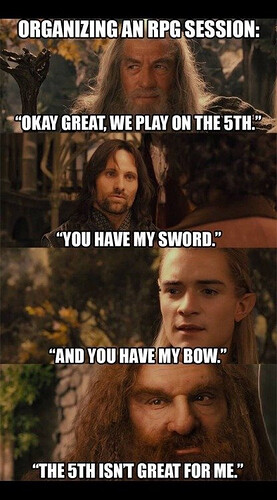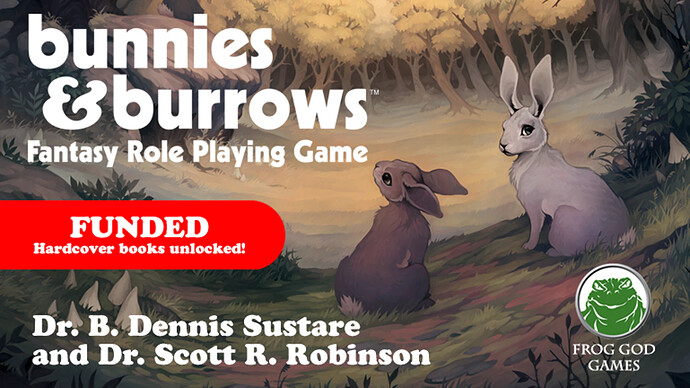Brief Aside
So here’s my take… It is my professional opinion that whatever you start with is probably going to be what you want to use MOST of the time. In tabletop RPG’s whatever you are most comfortable with is what most players like to play the most. So don’t sweat what is ‘easier’ per say… A lot of the stuff regarding RPG rules gets worked out over time.. I personally started with D&D 3.5 (with a short dabbling in 4th ed) but I only really played 1 game before I got into Dark Heresy (a warhammer 40k RPG), and from there I kinda lived in the Fantasy Flight games product line for a while. Switching systems is a bit of a hassle at first (especially if they are super different) but a lot of what makes an RPG ‘difficult’ is kinda similar between even totally different systems (mainly because a lot of it is remembering what kind of special situations have rules, and which ones don’t).
Now, to be on topic. Although 5e is built to be more streamlined and easier to pick up it still has a bit of a learning curve (and it really also depends on how you think, if you wanna be really critical 4th edition was supposed to be the ‘easiest’ version, when it arrived. But it had a lot of things that didn’t make intuitive sense for me).
Here’s why 5e is considered ‘less crazy’ the rules for characters in 5e are fairly simple. You pick 3 things: Race, Background & Class and from those things you pick up a combination of skills, abilities and ‘proficiencies’ (in an MMO kinda way), then you progress down a quasi-linear path, each level you get specific things, and then after a few levels you make a choice (hence quasi-linear).
Pathfinder is a bit different, you pick a Race & a class (fewer things to pick from) but the things you get from your class/race are supplemented by things which you as the player pick (feats), which are drawn from (depending on how many books you are using) a frankly labyrinthine list.
Now does D&D 5e have its own version of that labyrinthine list: yes, it uses feats itself, but i am super unclear on those rules, and they are technically optional. Obviously, my personal experience would say: pick the game that gives you the experience you want to have: Pathfinder is built for more ‘tailor made’ characters, where the character is the result of lots of choices and decisions while D&D is a bit more Archetypal.
I personally would guess that 5th ed is probably going to be easier to pick up (again, I am extrapolating based on character creation for Dark Heresy 2nd ed, which followed a remarkably similar mechanic). The exact mechanics between the two of them are remarkably similar, although pathfinder is more ‘technical’ with what gives bonuses/penalties where D&D kind a just blows out it’s cheeks and says ‘advantage’ (I know it still uses bonuses/penalties, but advantage seems to be the games go-to in many cases). But ease isn’t what I am concerned with, personally, I would read through the ‘introductory rules’ which should be freely available for both games and see which one seems more interesting to you.
also @delenn13 I want to thank you from the bottom of my heart for making my evening.



